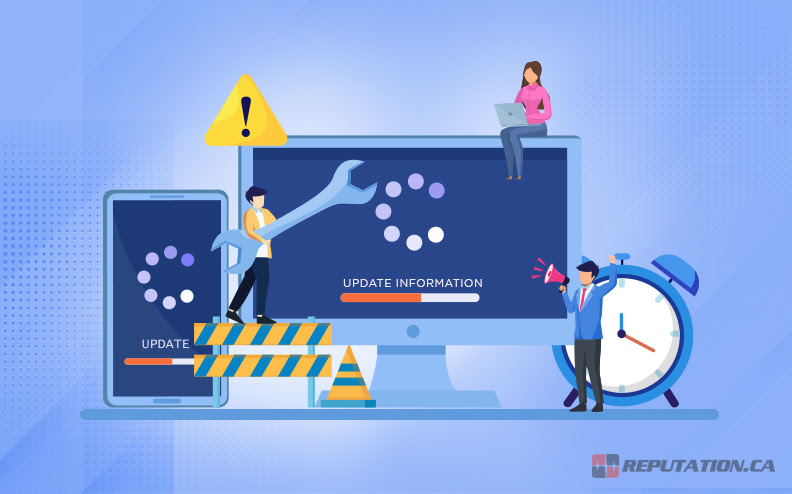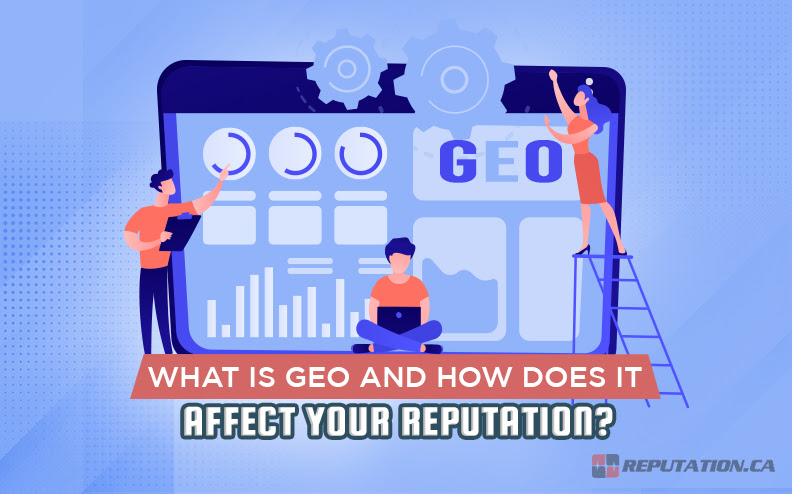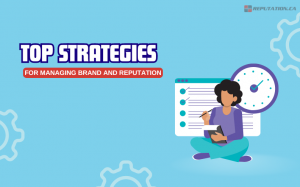Say your friend asked ChatGPT for a restaurant recommendation and then never bothered to click on any of the links. That single AI-generated answer probably decided where they went for dinner – and it worked better than thousands of traditional search results could.
Generative Engine Optimization (GEO) is all about making sure AI assistants say the right info about your brand when millions of people ask them questions. The whole process happens without any search results page showing up at all. When you nail GEO, you’re making sure AI gives accurate information about your company and says positive things in the answers that users trust without question.
Brand managers are starting to worry about a new problem – these AI systems sometimes get company names wrong, mix up your reviews with your competitor’s reviews, or just leave you out completely when they make recommendations. Your reputation is now in the hands of these algorithms that millions of people use every day. These systems quickly choose which businesses they’ll recommend, and they base those decisions on data you usually can’t see or control.
You need to know these systems that are already controlling what people hear about your brand – and you need to move fast.
How AI Systems Pick the Right Sources
Artificial intelligence search systems work very differently than the Google you remember from ten years ago. When you ask ChatGPT or Perplexity a question, these tools don’t just hunt for keywords like old search engines used to. Instead, they work more like research assistants who read through thousands of sources and then write you a custom summary. The problem is that most business owners haven’t changed their strategy yet.
Here’s where it gets especially interesting for your reputation. These AI systems need fresh information and credible voices. They scan the web in real time and choose which sources should represent your brand in their answers. Sometimes, they’ll skip right over a polished company blog post and instead quote a three-year-old Reddit thread about your business.
Your brand now gets judged by algorithms that care more about authenticity than polish, and each mention of your business turns into part of a bigger pattern these systems track across the entire web. Your reputation now can depend on how factual information shows up about you across dozens of different sites. Every outdated profile or conflicting detail hurts your credibility score.

Why does this happen? The answer is how these systems think about trust and relevance. Google’s Search Generative Experience and tools like Perplexity look for meaning and simple writing. They reward sources that explain concepts in an easy way and stay consistent when they mention people or businesses. These tools can spot overly promotional content pretty quickly.
This creates challenges for business owners. You might spend weeks writing the perfect website copy. But then you watch an AI system pull outdated information from some random forum post instead. The difference usually has to do with how authentic your content looks to these research assistants.
If you want to control your narrative, you need to think beyond your own website and social media channels. Random mentions in industry forums or news articles matter more than your well-written About page, and each external mention either backs up your brand story or undermines it.
The stakes just get higher, too. Generative AI tools now process over 10 million queries every day, and people ask much longer questions than they used to on traditional search engines. These longer queries usually mean longer answers that pull from multiple sources about your business.
How AI Search Steals Your Customers
Recent research tells us that over 60% of searches end without any clicks to websites. People get their answers straight from the AI snippet and move on. The numbers don’t lie – this change happened faster than most people expected. What that means is that traditional websites are now losing out on visits they used to count on every single day.
Say you need to know, “Which pharmacy delivers tonight?” If the AI suggests your competitor instead of you, that customer probably won’t keep searching. They’ll just call the first option that comes up. You’re losing the sale before you even knew someone needed your service.
Your competitor gets the business while you have no idea what happened. Customer searches that used to give you multiple opportunities now give you just one shot. If you miss that second when the AI picks who to recommend, you’ve lost a sale that should have been yours.

The stakes get even higher when AI systems make mistakes. If an AI assistant mispronounces your business name or gives the wrong hours, customers might think you’re closed or unprofessional. Some people won’t bother to double-check the information. Wrong information sticks in people’s minds longer than the right information does.
This causes a funnel problem that most businesses don’t see coming. The old path went from search to website to buying. Now, it jumps straight from question to action. Your website might never even come into the picture.
The traditional sales funnel just broke in half. Customers who used to browse your site now make decisions based on AI answers alone. Your careful web design and great content don’t matter when people never see them. Every time the AI doesn’t mention you, you’re losing money that could have been yours.
The scary part is how invisible this all is. You won’t see these lost opportunities in your website analytics. These possible customers never show up to be counted. They just disappear into your competitor’s sales numbers instead. You’re working blind while your competitors steal customers you don’t even know about.
When Competitors Target Your Brand Terms
Other businesses can now bid on your brand name, and you can’t do much to stop them. Google’s broad-match algorithms make it very easy for other businesses to show up when people search for your company. When someone searches for your hotel chain, they might see ads from competing hotels right there at the very top.
The real problem comes up when AI search engines start to use these paid ads in their answers. These AI-generated answers now affect what people buy across just about every industry. Sometimes, these AI systems will include messages from other businesses right in their answers about your brand. You could search for “best loyalty program” and find your own trademarked terms buried inside another company’s AI-generated sales text.

The 1-800 Contacts v. Lens.com case showed how messy trademark fights can get when businesses go after one another’s brand terms. These brand bidding legal fights almost never work out well for anyone involved. The legal battle went on for years, and it cost businesses a fortune and hurt their reputations. Businesses ended up spending more on lawyers than they ever got back in new business.
You do have some ways to manage this, though. Negative keywords help you block other businesses from showing up in some searches. Exact-match exclusions give you more control over when your ads show up – though you’ll need to check and update them all of the time. Structured data helps search engines understand your content better, so they’re less likely to mix up your brand with other businesses.
The problem is that customers who land at the wrong website cost you more than most businesses think. What does it actually cost you every time AI sends one of your customers to another company instead? And how much damage happens when an AI system accidentally connects a bad review about another business to your brand name? These questions might not have easy answers.
How Location Affects Your Online Reputation
When generative engines create their answers, they don’t just pull information from random sources. They actually combine location information like your IP address and local news coverage to put together their answers. Most users never know this happens behind the scenes. So, the same business can get wildly different answers based on where someone searches from.
Here’s something that happens more than you’d think. A coffee chain expands into Denver with lots of excitement and positive local reviews. But when customers ask AI engines about the brand, they still get told it’s “coastal only” because that’s where most of the online content came from. This gap between reality and what AI says can leave people pretty confused. Now, you have confused customers in areas where your locations actually exist.
The problem goes deeper than just old information. These engines also pull in local opinions from news stories and social media posts. A supply chain delay that only hits your Northeast locations might start changing how AI describes your entire brand to users in that region. At the same time, customers in other areas never hear about the issue at all.

Regional bias breaks up your brand reputation across different markets. What you’re trying to say gets filtered through local content patterns that might not show what’s going on, and each location gets judged based on old or incomplete data. Your business loses control over its own story in different regions.
Most businesses think their message works the same everywhere. They write one story and expect it to land the same way across different markets. But AI engines are smart enough to find regional patterns in complaints and praise. Your great national rating might hide groups of frustrated customers whose voices get amplified in local AI answers.
The engines even track foot traffic patterns and demographic data to shape how they understand different areas. These systems change their answers based on real visitor patterns and how much locals use your business. What happens is your online reputation gets shaped by what the algorithms think, and those thoughts change depending on location.
Build Your Own Brand Defense Strategy
You can’t fix what you don’t measure first. A natural place to start is to check where your brand shows up in generative search results right now. Go ahead and search for your company name and some of the common questions people ask about your industry. The results might catch you off guard. AI engines sometimes pull outdated information, or they mix facts about different businesses together. Take some time to write down what you find and track any answers that seem wrong or incomplete.
Wrong information spreads fast in AI search results. Your future customers see these answers, and they make up their minds about your business based on outdated information. When you have incorrect answers floating around out there, each one turns into a missed opportunity to connect with someone who needs your services. Next, look at the searches that matter most to your business. If you run a restaurant, searches about your menu and allergen information matter more than general industry questions. A wrong answer about peanuts could send someone with allergies to the hospital.
What helps is creating content that directly answers these priority questions. Make sure that your answers are clear and factual. AI systems usually favor plain information over marketing language. When you write this content, answer like you’re talking to a friend who asked you an honest question about your business. Direct answers win generative search. Your marketing copy might work great on websites. But AI engines want content that gets straight to the point. When customers search through AI, they want answers, not sales pitches.

You’ll probably want to check your results every week to see if your work is paying off. Generative AI always changes, so what looks fine now might change tomorrow. Some teams track this every single day. But if you check weekly, then you’ll catch most problems without making extra work for yourself. Remember that different AI systems might show different answers. Make sure to test your brand searches across multiple services. The goal isn’t to be perfect everywhere. But you do want to catch the big mistakes that could hurt your reputation.
Figure out who in your company should take care of this work. Marketing teams understand the brand message. But they might need help from technical staff to get some changes implemented. When marketing and technical teams work together, this whole process gets much easier to keep up with. Marketing knows what your brand should say, while technical teams understand how to make changes stick.
Neither group can do generative search optimization on their own.
Monitor and Manage Your Reputation
When generative engines, competitive keyword strategies, and location-based searches all come together, they directly shape how people see your brand online. Most businesses don’t know just how connected these systems have become. What happens in this online space can make or break public perception faster than ever before. This gets worse when competitors are actively going after your keywords and local markets.
If you want to manage your reputation, you need a completely different strategy than what worked just a few years ago. Your competitors are already making these changes, while traditional reputation strategies fall behind. The businesses that succeed know that waiting around and reacting to problems leaves way too much to chance. Brand stewards can no longer sit back and hope for the best – they need to test, measure what works, and adapt their strategies as everything changes. The great news is that when you take this more active way of working, you get more control over your story. But you do need to stay on top of it all since algorithms never stop working, and neither does your competition.

You need to show real expertise and trustworthiness that people and search engines can see – that’s the foundation of successful reputation management in this new environment. Search engines have become much better at telling what’s real and what’s fake. When you combine generative engine optimization with authentic content, you build a strong shield that protects your brand and creates stronger connections with your audience at the same time. Authentic content connects with real people and keeps the algorithms happy – this two-sided approach means your reputation work builds on itself over time instead of always putting out fires.
If you want to take control of your online reputation, you need expertise that understands how these online systems work together. Trust Canada’s leading experts in handling reviews, social media, public relations, and crisis response. If you need help with cancel culture or want to build a stronger presence online, we’re here to help.
Contact us at Reputation.ca now for expert help designed specifically for your needs!







